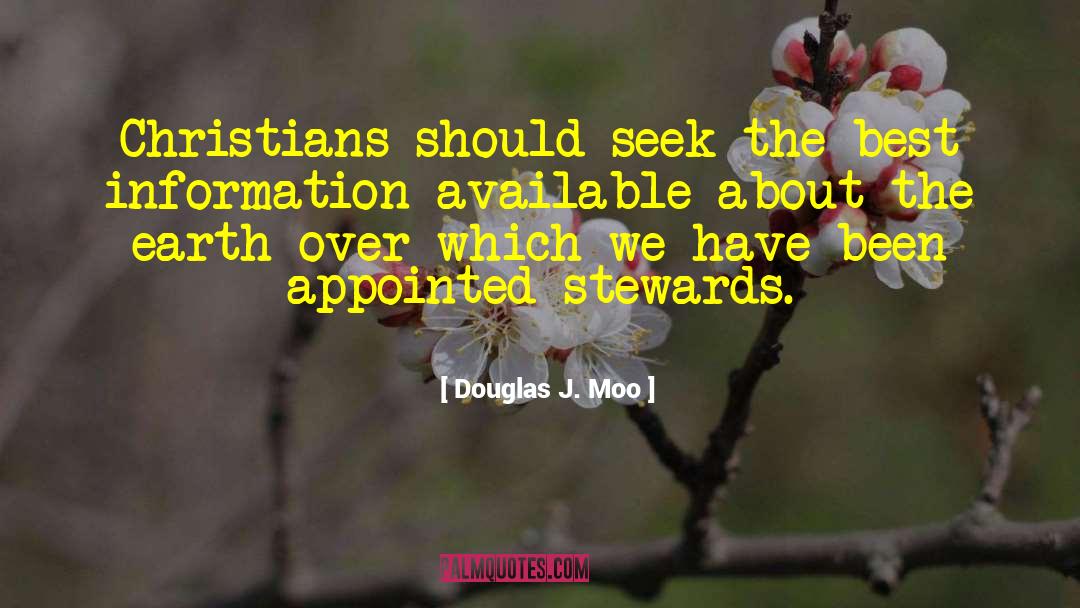Douglas J. Moo Famous Quotes
Reading Douglas J. Moo quotes, download and share images of famous quotes by Douglas J. Moo. Righ click to see or save pictures of Douglas J. Moo quotes that you can use as your wallpaper for free.
If we are serious about helping nature, we need to be willing to forego material benefits.

Paul's evangelism, his letters suggest, has two great motivations: a sense of obligation derived from what God has done for him and commissioned him to do for others, and a desire that God will be glorified by as great a number of people as possible. We are to imitate Paul by extending God's grace in the gospel just as he did.
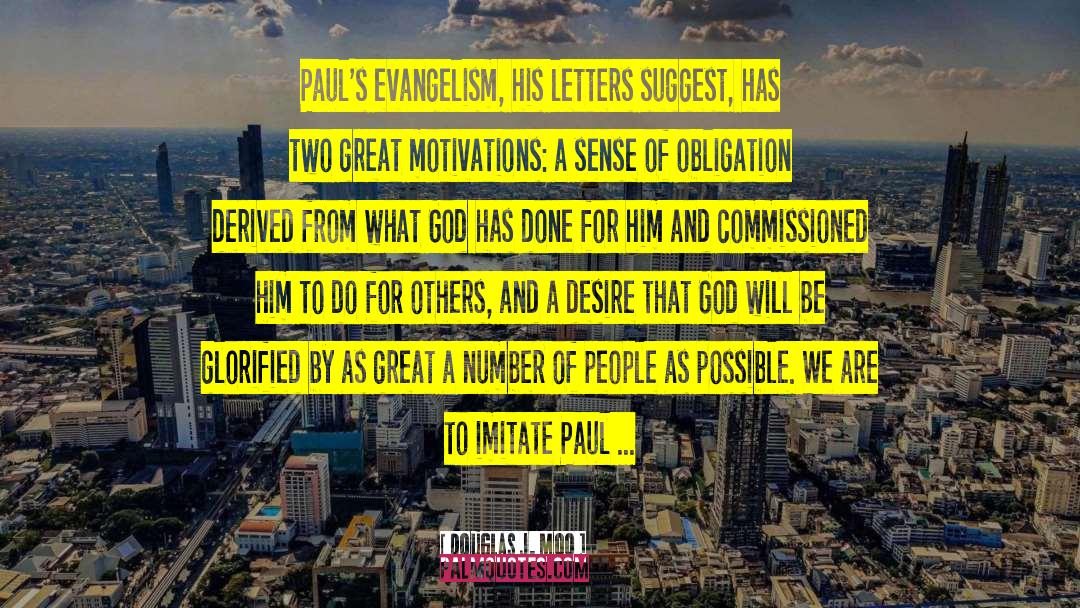
The seventeenth-century Jewish philosopher Spinoza observed: "I have often wondered that persons who make boast of professing the Christian religion - namely love, joy, peace, temperance, and charity to all men - should quarrel with such rancorous animosity and display daily towards one another such bitter hatred, that this, rather than the virtues which they profess, is the readiest criteria of their faith.
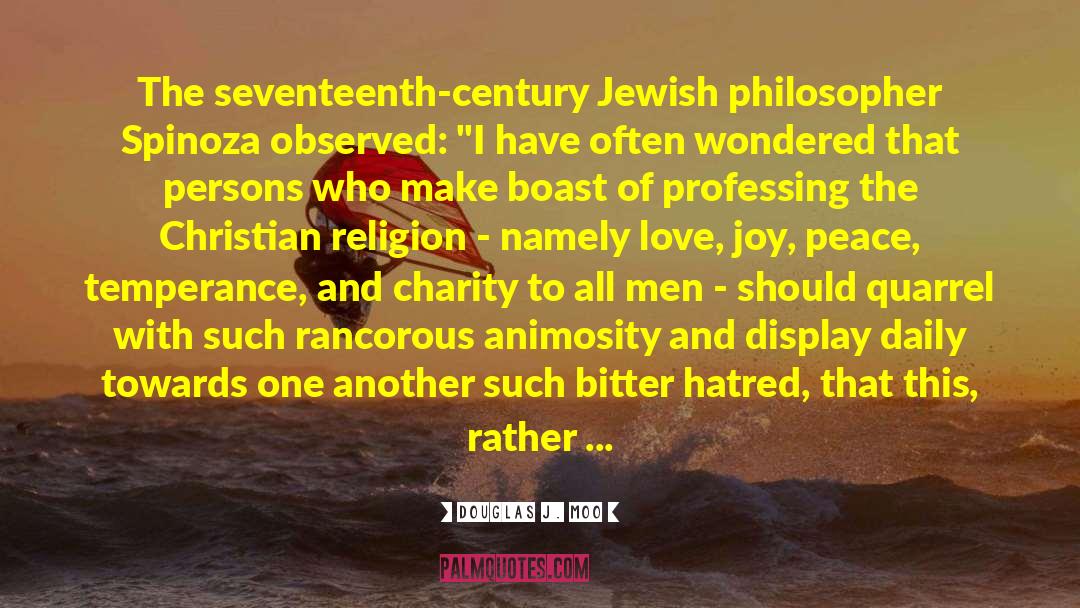
When people believe in Christ, they become identified with one another in an intimate association and incur both the benefits and responsibilities of that communion. Philemon is fundamentally all about those responsibilities, as Paul, Onesimus, and Philemon, bound together in faith, are forced by circumstances to think through the radical implications of their koinnia.
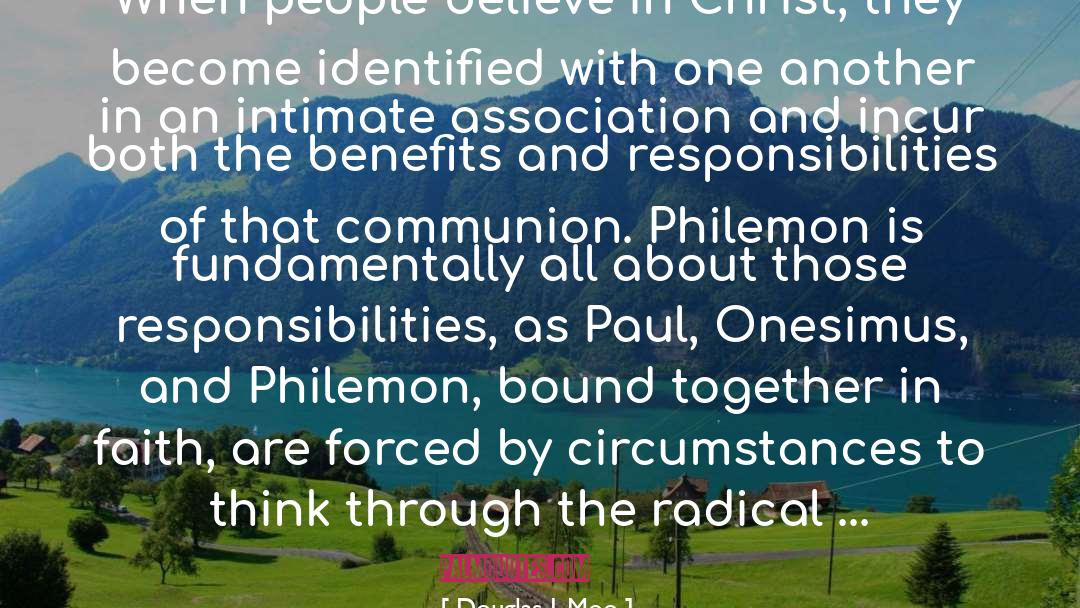
At first sight, Paul's command that slaves obey their masters seems simply to endorse the status quo. But we need to see that what he writes here also subtly undermines it. First, it is significant that Paul chooses to address slaves at all, implying not only that they are assembled with the other Christians of the Colossian church to hear the letter being read but that they are responsible people who need to choose a certain kind of behavior. Second, Paul clearly relativizes the status of the slave's master by repeatedly reminding both slave (vv. 22, 23, 24) and master (4:1) of the ultimate "master" to whom both are responsible: the Lord Jesus Christ. Third, Paul never hints that he endorses the institution of slavery. He tells slaves and masters how they are to conduct themselves within the institution, but it is a bad misreading of Paul to read into his teaching approval of the institution itself. (For
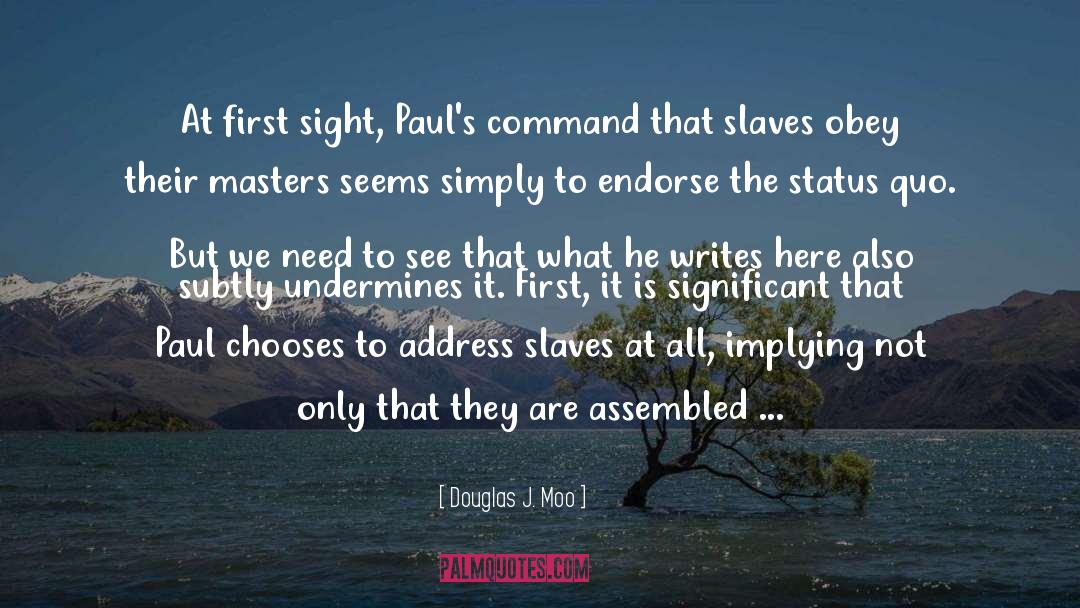
Any teaching that in any way detracts from Christ's exclusive role is by definition both wrong and ineffective. The teachers themselves are probably not denying that Christ was central to God's saving purposes. They seem rather to be arguing that certain practices must be added on in order to achieve true spiritual fulfillment. But, for Paul, in this case, addition means subtraction: one cannot "add" to Christ without, in effect, subtracting from his exclusive place in creation and in salvation history.
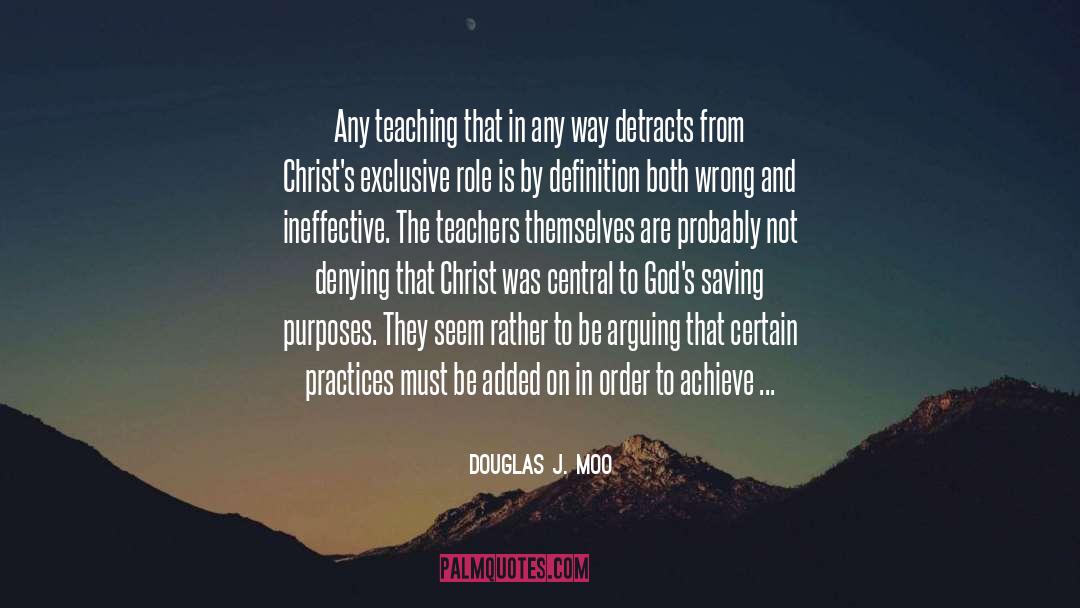
And, at the risk of generalizing unduly, we might suggest that here as well is the point of contact for the application of the message of Colossians to a wide variety of historical and contemporary teachings. Any teaching that questions the sufficiency of Christ - not only for "initial" salvation but also for spiritual growth and ultimate salvation from judgment - falls under the massive christological critique of Colossians.

But more important here is the rhetorical point that they make: Philemon is to respond to Paul because he, Paul, and Onesimus are all "in the Lord/Christ."1365 The fellowship that is created among those who have faith in Christ (v. 6) brings with it obligations to one another.
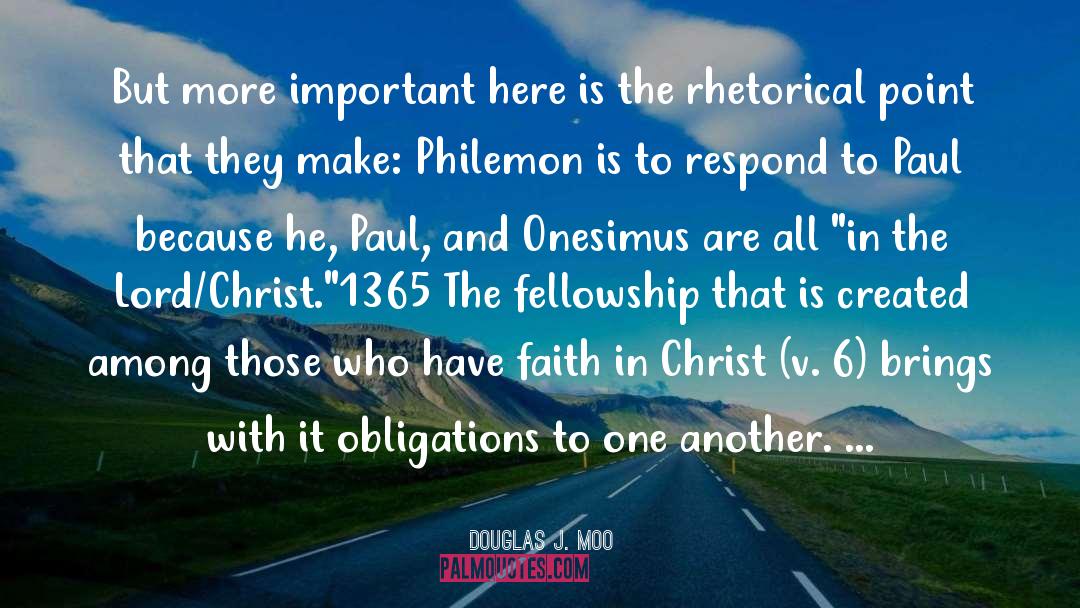
Yet it does suggest that our notion of Philemon as a "private individual" or of his handling of the Onesimus situation as a "private matter" needs rethinking. We may be injecting into the first-century Christian community a contrast of "private" versus "public" that was simply not present there. Indeed, we will suggest that one of the enduring and extremely relevant teachings of Philemon is the degree to which Christians are bound to one another in all their activities through their common faith. Paul
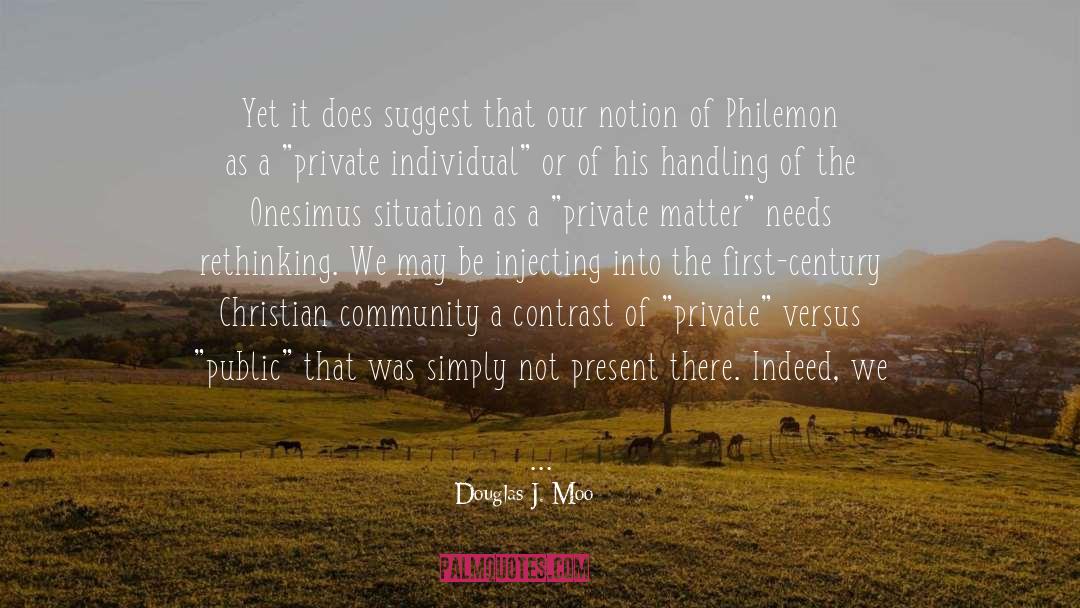
James condemns any form of Christianity that drifts into a sterile, actionless "orthodoxy." Faith, not what we do, is fundamental in establishing a relationship with God. But faith, James insists, must be given content. Genuine faith, he insists, always and inevitably produces evidence of its existence in a life of righteous living.
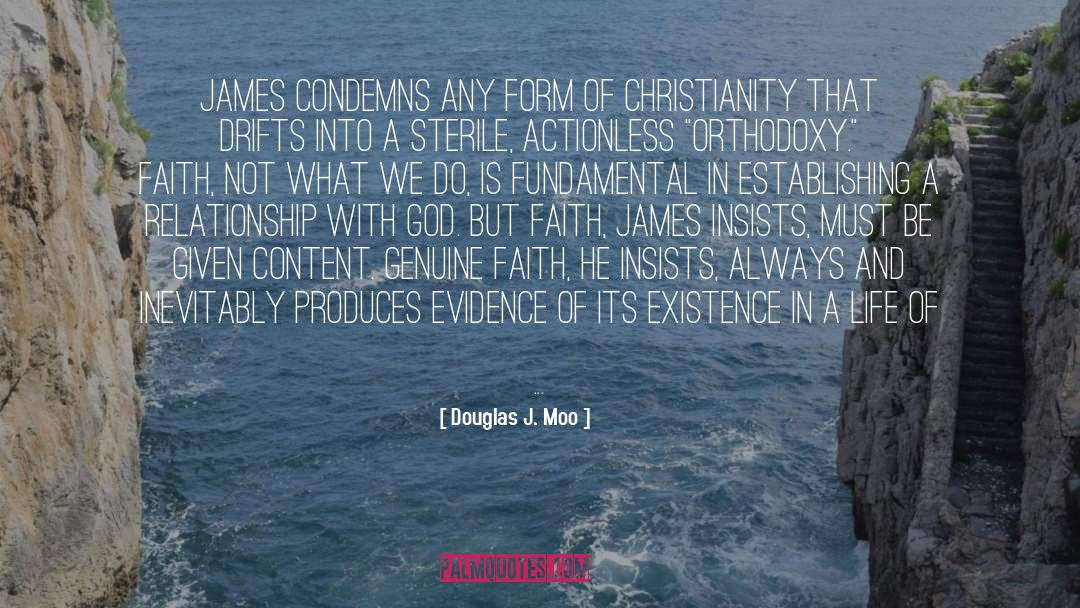
Christians should seek the best information available about the earth over which we have been appointed stewards.
